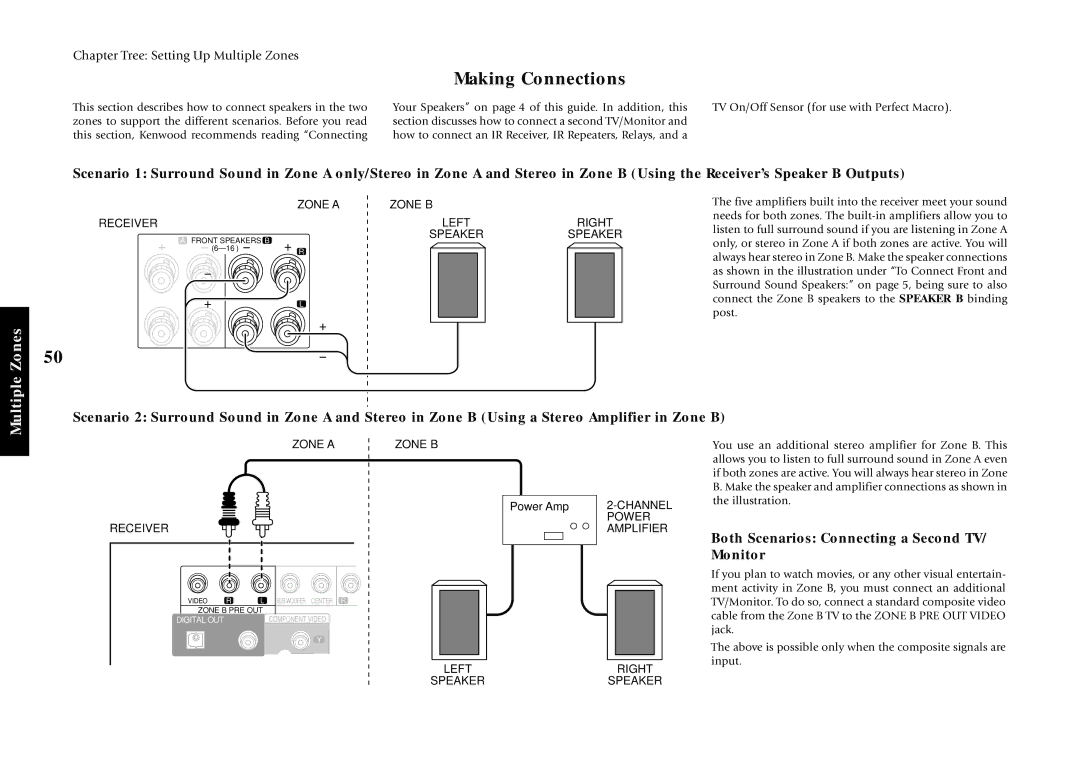
Chapter Tree: Setting Up Multiple Zones
This section describes how to connect speakers in the two zones to support the different scenarios. Before you read this section, Kenwood recommends reading “Connecting
Making Connections
Your Speakers” on page 4 of this guide. In addition, this | TV On/Off Sensor (for use with Perfect Macro). |
section discusses how to connect a second TV/Monitor and |
|
how to connect an IR Receiver, IR Repeaters, Relays, and a |
|
Scenario 1: Surround Sound in Zone A only/Stereo in Zone A and Stereo in Zone B (Using the Receiver’s Speaker B Outputs)
RECEIVER
AFRONT SPEAKERS B
Ω
ZONE A | ZONE B |
LEFTRIGHT
SPEAKERSPEAKER
R
L
The five amplifiers built into the receiver meet your sound needs for both zones. The
Multiple Zones
50
Scenario 2: Surround Sound in Zone A and Stereo in Zone B (Using a Stereo Amplifier in Zone B)
ZONE A | ZONE B |
RECEIVER
VIDEO | R | L | SUB WOOFER | CENTER | R |
ZONE B PRE OUT
DIGITAL OUT | COMPONENT VIDEO |
Y
LEFT
SPEAKER
Power Amp
2-CHANNEL POWER AMPLIFIER
RIGHT
SPEAKER
You use an additional stereo amplifier for Zone B. This allows you to listen to full surround sound in Zone A even if both zones are active. You will always hear stereo in Zone B. Make the speaker and amplifier connections as shown in the illustration.
Both Scenarios: Connecting a Second TV/ Monitor
If you plan to watch movies, or any other visual entertain- ment activity in Zone B, you must connect an additional TV/Monitor. To do so, connect a standard composite video cable from the Zone B TV to the ZONE B PRE OUT VIDEO jack.
The above is possible only when the composite signals are input.
